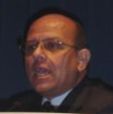The Twitter Files are a set of internal Twitter, Inc. documents made public as of December 2022, disclosed by Chief Executive Officer (CEO) Elon Musk to journalists Matt Taibbi, Bari Weiss, Lee Fang and to authors Michael Shellenberger, David Zweig, and Alex Berenson shortly after Musk's acquisition of Twitter on October 27, 2022.
National security agencies and high-echelon bureaucrats have become biased in promoting a political ideology and mechanisms to control the population that puts them practically at the helm of the United States government from behind the scenes. Despite the fact that these agencies and bureaucrats' political and ideological activities are now coming to light, they nevertheless seem to enjoy the immunity that comes with their unbridled control over the justice system, the press, and social media.
It is now known that Jim Baker, who previously held a high position as the FBI's Legal Counsel, and a large number of other former FBI agents had attained positions of authority within Twitter. It is also well known that this and other national security agencies and organizations exerted strong and constant pressure on Twitter and other social media platforms to censor content and even shut down the accounts of those who dared to voice opinions or attempted to disseminate information that was not in favor of the political and ideological interests they supported.
 They went to the extreme of conspiring against the acting President, to whom they owed allegiance according to the country's Constitution, promoting investigations without cause and leaking false information that the media spread without revealing the sources, taking refuge in an ethical "privacy rule".
They went to the extreme of conspiring against the acting President, to whom they owed allegiance according to the country's Constitution, promoting investigations without cause and leaking false information that the media spread without revealing the sources, taking refuge in an ethical "privacy rule".
- Hits: 1769
 Estados Unidos se fundó bajo la premisa de que la libertad es un valor universal. Thomas Jefferson, en la Declaración de Independencia, fue inequívoco: “Consideramos como verdades evidentes que todos los hombres son creados iguales; que son dotados por su Creador con ciertos derechos inalienables, entre los cuales están la vida, la libertad y la búsqueda de la felicidad”. Pero, ¿es ciertamente la libertad ansiada universalmente por todos los pueblos, en todas partes, todo el tiempo?
Estados Unidos se fundó bajo la premisa de que la libertad es un valor universal. Thomas Jefferson, en la Declaración de Independencia, fue inequívoco: “Consideramos como verdades evidentes que todos los hombres son creados iguales; que son dotados por su Creador con ciertos derechos inalienables, entre los cuales están la vida, la libertad y la búsqueda de la felicidad”. Pero, ¿es ciertamente la libertad ansiada universalmente por todos los pueblos, en todas partes, todo el tiempo? En días pasados se presentó oficialmente la alianza estratégica entre los gobiernos ruso y cubano. Un think tank de la lejana nación asesorará las transformaciones económicas que Cuba hará para asumir el modelo ruso de economía de mercado con una autocracia hegemónica y excluyente. Es el cambio fraude.
En días pasados se presentó oficialmente la alianza estratégica entre los gobiernos ruso y cubano. Un think tank de la lejana nación asesorará las transformaciones económicas que Cuba hará para asumir el modelo ruso de economía de mercado con una autocracia hegemónica y excluyente. Es el cambio fraude. Nuestro país comienza a transitar un momento crítico diferente a los que hemos vivido en estos 23 años de gobiernos chavistas. Durante más de dos décadas Venezuela ha sido la plataforma de lanzamiento de un vasto proceso subversivo que constituye parte muy importante de la confrontación geopolítica mundial.
Nuestro país comienza a transitar un momento crítico diferente a los que hemos vivido en estos 23 años de gobiernos chavistas. Durante más de dos décadas Venezuela ha sido la plataforma de lanzamiento de un vasto proceso subversivo que constituye parte muy importante de la confrontación geopolítica mundial.